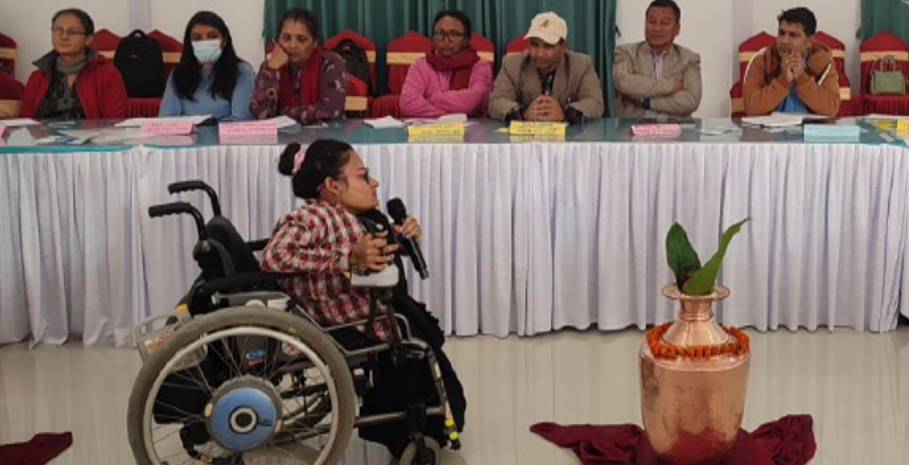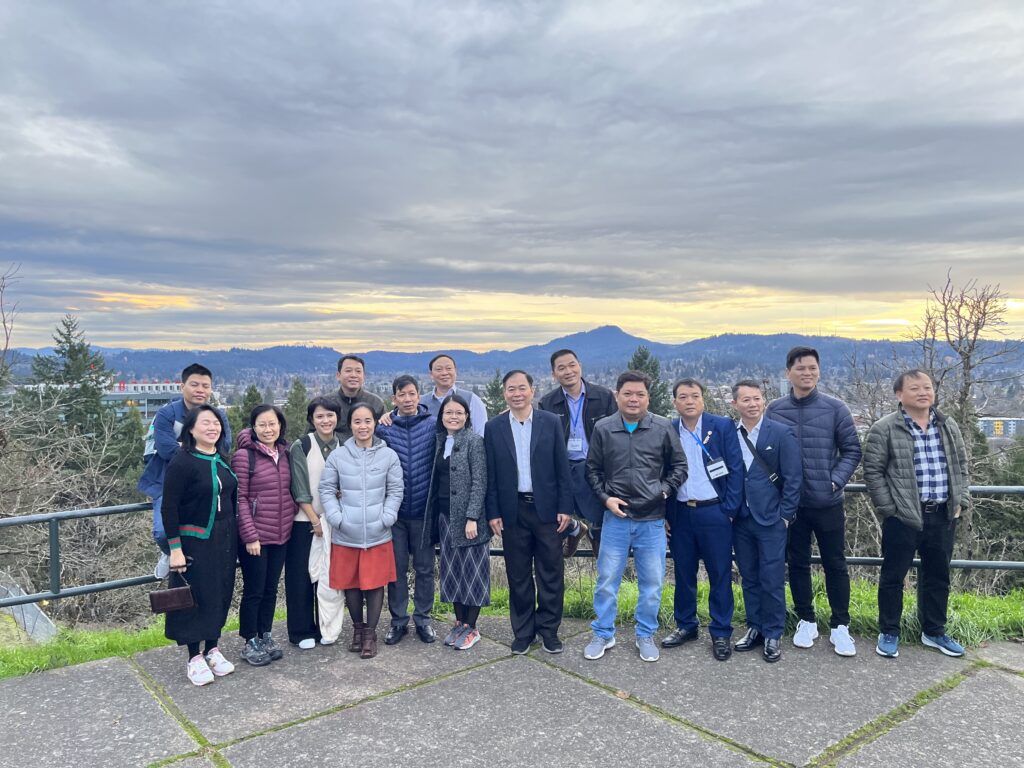Implementation of disability rights laws requires coordinated and persistent efforts from disability community leaders and their allies.
One of the primary challenges faced by disability communities around the world is the lack of enforcement of existing laws. Many provisions meant to ensure accessibility and provide equal opportunities remain unimplemented, leaving people with disabilities excluded from various aspects of life, including education, employment, and public services.
The 2022 local elections in Nepal provided a strategic opportunity for disability rights leaders to advocate for implementation of disability rights laws and policies. Working with our local Nepali partner, Center for Independent Living – Pokhara (CIL-P), MIUSA conducted a 12-month project in the Gandaki Province of Nepal. The project included trainings to strengthen capacity of persons with disabilities to access and participate in political processes. Simultaneously, government stakeholders needed to be pressured into action. Through advocacy interventions, disability rights leaders called for increased accountability measures to ensure that laws protecting the rights of people with disabilities are not just on paper but are effectively enforced in practice.
Disability Rights Advocacy Training for OPDs
A highlight of the project was a four-day Disability Rights Advocacy training for 32 leaders from Organizations of Persons with Disabilities (OPDs) throughout the province. The training included critical information about disability rights policy and legislation, as well as practical skill-building exercises for political advocacy.

OPD-led Advocacy Interventions
During the training, participants designed their own advocacy interventions for their local areas, which were supported through a small grants program and with technical support from CIL-P. In total, 11 Nepali disabled people’s organizations (DPOs) conducted advocacy interventions which included 152 activities and engaged over 2,400 people with and without disabilities.
CIL-P provided significant technical support to OPDs during the advocacy interventions, which resulted in capacity building beyond political advocacy skills. OPDs were also supported in proposal writing, reporting, financial management, organizational policy development, coordination skills, and event management. As a result, Nepali OPDs are better positioned and more capable of designing and leading their own projects in the future.
Engaging Government Stakeholders
Another key part of the project was training and technical assistance provided to government stakeholders. Local government officials reported gaining new understanding of disability issues as a result of their participation in the project. Most importantly, they made disability-related budgetary commitments (such as provision of personal assistant services and sign language interpreting).

Sustained Impact
MIUSA is proud of the many accomplishments our local partner CIL-P achieved in this short, but powerful project. CIL-P and the other participating OPDs have forged stronger relationships with government leaders and the wider community. Through new relationships developed with government officials, OPDs are also receiving more direct support. Government officials are also reaching out to CIL-P for their technical expertise as disability policies are implemented, such as developing new personal assistant service guidelines. Finally, a provincial disability policy passed as a result of these coordinated advocacy efforts. The new policy will pave an avenue to formulate a Provincial Act on Disability – and CIL-P will be leading the way!




